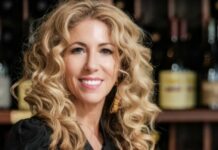 Rabbi Elazar Freedman wasn’t sure he was ready to leave Israel before he got a job offer to be an educator at the University of Maryland’s (UMD) MEOR, but the 23-year-old Michigan native took the leap and is now excited to be a part of what he calls a great organization with a fantastic culture and connecting with the next generation.
Rabbi Elazar Freedman wasn’t sure he was ready to leave Israel before he got a job offer to be an educator at the University of Maryland’s (UMD) MEOR, but the 23-year-old Michigan native took the leap and is now excited to be a part of what he calls a great organization with a fantastic culture and connecting with the next generation.
What made you decide to become a rabbi?
I was living in Israel for the past four years. And I started doing these programs during the summers mostly, but also during the year a little bit, where young college students from America would come to Israel to do internships … I really enjoyed it. And I felt like this was something that I wanted to do with my future. So, I actually went to this rabbinical training program in Jerusalem called the Jerusalem Kollel and in Hebrew it’s the word for young married men that go to study toward becoming a rabbi.
How did you get your position as an educator with UMD MEOR?
My grandfather was one of the pioneers in being a campus rabbi. He was a rabbi at the University of Michigan for many years. And Rabbi Koretzky, who is my current boss, got trained to do his rabbinical work through my grandfather. I met Rabbi Koretzky, in Israel … Later in the year they had this job fair for young, aspiring rabbis. I wasn’t even really looking to go out [of Israel] yet because I’m super young … I went there … and we ended up meeting [to learn about the job] and it went well, but I still wasn’t really planning on going out [of the country]. Then later on in the year the circumstances changed for me. I reached back out to him, and he ended up flying me out for a pilot trip. And we really connected, and I love students over here. I felt like there was a need for a younger [rabbi], just someone that’s into the same stuff that the college students are.
How has your life been different since moving back to the U.S. and having a full-time job at a university?
It’s a tremendous difference. Israel is an incredible, incredible place, and there are aspects that I’ve missed tremendously. But being in America, I grew up in West Bloomfield, Michigan, it’s definitely a comfortable feeling for me. My life has changed because before I was studying just for myself and trying to gain the knowledge and experience, the Jewish learning for myself, but now it’s a whole different thing having to give over that knowledge to other people and help people in their growth. There’s this saying in the Talmud: ‘That from my teachers, I have learned a lot; from my students, I have learned much more.’ There’s something that is powerful about having people that are learning from you – they challenge you in all your knowledge and you have to know what you’re talking about. You have to be secure in your knowledge. So that was a big change for me, going from that student role to that educator role. And that’s been an incredible, incredible transition for me. But I love being able to constantly be helping the Jewish people and just helping young Jewish students grow into their full potential. That’s quite empowering.
What does your life look like outside of work?
I’m a big, big sports fan. I’ve always been a big Detroit sports fan – I love the Lions. Athletics has been a big one [hobby]. I’ve been part of a few leagues in Israel, they have a flag football league that’s pretty competitive. I actually played tight end in the league for one season, and it happened to be shut down. It was the Covid season. They shut it down after six games and thank God they did. We were 0-6 … I do love traveling. I do love nature. I love just meeting new people and seeing new things. My wife and I just started in West Virginia, at one of the National Parks, [we said] let’s buy ourselves this National Park passport book. We’ve been to so far like seven national parks, most of the ones in the neighborhood, but it’s just something that I hope to be able to do – to visit all the beautiful nature that we have in this world and in America.
What’s the personal importance of teaching the next generation of Jewish students?
I think it’s tremendously valuable for people to understand and appreciate and have pride in their Judaism. Oftentimes for a lot of people, they know they’re Jewish and they think it’s cool, but they don’t necessarily understand and appreciate what it means to really be Jewish and the incredible values that our Jewish values have within them. It’s actually super empowering for me, and I think it’s super valuable for people to gain that appreciation and that pride in being Jewish and really, use that to help their lives and to grow as people and to become the best people they can become and hopefully help their children really grow.





